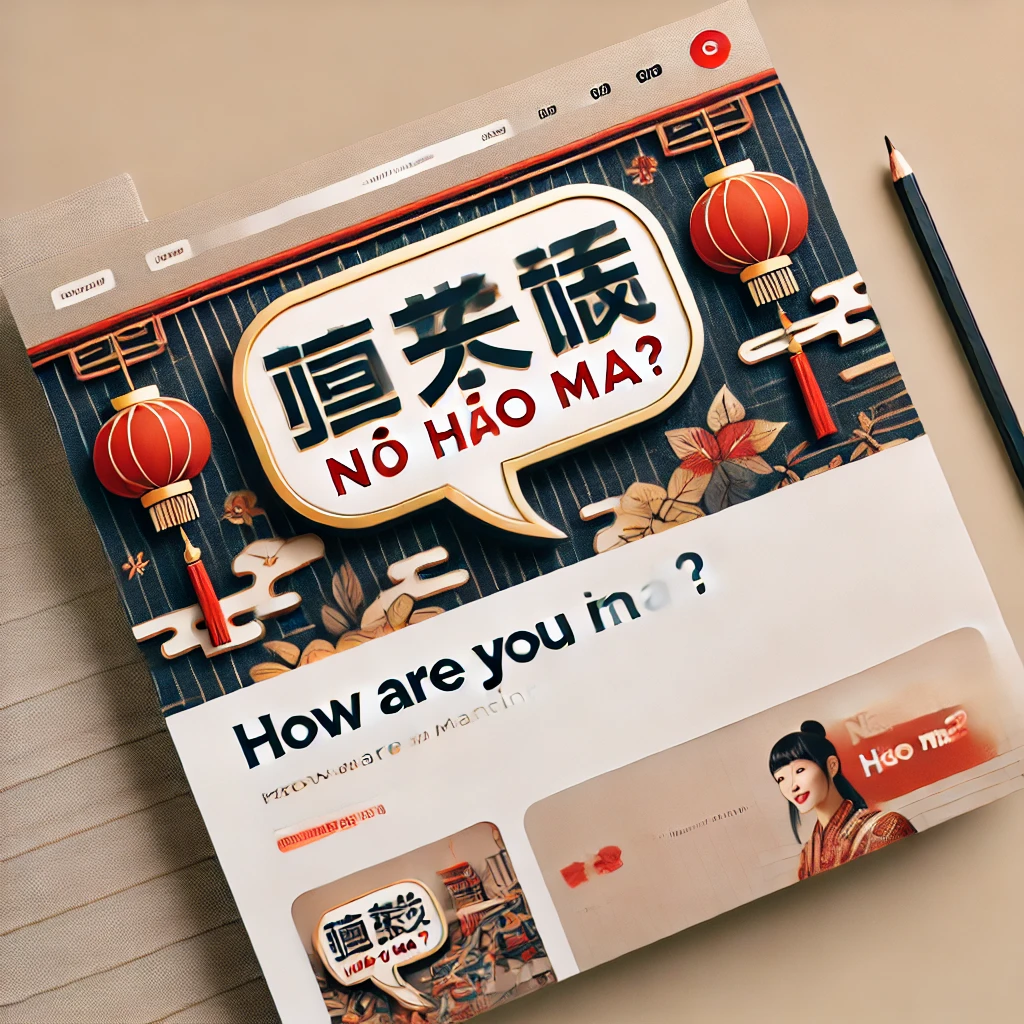Knowing how to pronounce the question, How are you? in Mandarin is of essence when learning the language. Much as in the English language, there are a lot of variations besides the standard ones covered in textbooks. By learning to reformulate combinations of your own speaking style, you will get more natural at asking this question and demonstrating a better control of the language. This guide will provide some readymade common phrases and suitable reactions as well as what can go wrong in different regions, so learn.
The same greeting How are you? in Chinese might not sound natural, unless you are fluent because tone and context are very important. The most widely recognizable one, 你好吗 ( n i h a o ma ) is only a good starting point as native speakers will tend to use different variations under different circumstances. If you need more interested info like that visit quick guider.
They are essential because you never know when you will have to greet people, new friends, or do something to improve their language skills. In this piece, we are going to explore other ways of saying hello in Mandarin as well as the pronunciation, among other additional things to know about their culture to better interact with native flavors.
How to say “How are you?” in Mandarin Chinese
The Chinese language is of more than 5000 years of existence which has undergone massive changes. Considering the Mandarin language has many ways of saying that you are fine, nuance can be a determining factor given that the language has great culture. One should remember to put these phrases in context before using them and pinyin is a guide to pronunciation. The common greetings are, though there are others, N i h o ma? (N i z e n me y a n g? ), which translated means, how are you?
How to respond when somebody asks “How are you?” in Chinese
Now that you learnt how to ask someone how he/she is in Mandarin, it is time to learn how to reply to those questions. An easy and one of the simplest responses is WHAHL HAO (我还好), meaning, I am still okay. The other choice is, “Wǒ bùcuò” (我不错) That would be translated to “Not bad.”
Other translations are, Wǒ hěn hǎo, xièxie to say I am very good, Thank you or Wǒ zuìjìn máng to say I have been busy lately. As a courtesy, it is best to phrase in response, “Nǐ ne?” (你呢), which means “How about you?”, and modulate the answer depending on the scenario and nature of relationship with the other person.
How to Say “How Are You” in Chinese Like a Native
Learning to ask how are you in Chinese can be used to start a conversation and be polite to the cultural context. The common one is, N”; respect=””></css income income Chinois de departement : departement income Chinois de departement : departement income An alternative way of saying it (more colloquially) is -Ni zhen me yang? (你怎么样), which means How are you doing? Also, “Nǐ hǎo” (你好) can be used as a typical greeting either more like it is said in the English-speaking world when we say hello and how are you to people; or the English-speaking equivalent of saying both hello and how are you as one phrase.
Interesting Ways to Ask ‘How Are You’ in Chinese
It is a commonplace to ask a greeting inquiry, and a question about well-being is a natural place to start a conversation with a family member, a friend or a new friend. Nonetheless, in Chinese, tone and situation also matter in having the greeting acquire a natural sound.
General ones such as to ask how you are include “Ni ze zhang mei?” (你怎么样), or to ask how are you just now, “Zui jin rui he?” (最近怎么回答累?), with others such as to ask how are you with specific reference to well being, such as, ni shi ti hao ma? (身体好吗?”). The awareness of these variations and the appropriate tone will be a great solution to communicate in Chinese-speaking context more naturally and respectfully.
Conclusion
It is important that to communicate and learn about a Mandarin culture; it is necessary to learn how to say, How are you in Mandarin. Although Nǐ hˇ ma? ( 39 Bloomington (b overwhelmed [na missed st If you need more info related How often to change brake fluid.
Being able to react correctly by speaking such words as “Wǒ hái bango o” (我还好) or “Wǒ bùcuò” (我不错) is also a way of increasing your fluency. With the help of these greetings, as you become familiar with the concerned context, you will be in a better position to more freely and confidently participate in Chinese dialogues. To find out more about How long are fresh eggs good then visit this page.
FAQS
How do you greet someone in Mandarin?
You can greet someone in Mandarin by saying “Nǐ hǎo” (你好), which means “Hello.” For a more polite greeting, you can say “Nín hǎo” (您好) when speaking to elders or in formal situations.
How do you respond to Nǐ hǎo?
You can respond to “Nǐ hǎo” (你好) by simply saying “Nǐ hǎo” back. Another common response is “Wǒ hěn hǎo, xièxie. Nǐ ne?” (我很好,谢谢。你呢?) which means “I’m very good, thank you. And you?”
What is bù tài hǎo in Mandarin?
“Bù tài hǎo” (不太好) means “Not very good.” It is used when you are not feeling well or having a bad day.
How are you in Mandarin casual?
A casual way to ask “How are you?” in Mandarin is “Nǐ zěnme yàng?” (你怎么样?). Another common phrase is “Zuìjìn hái hǎo ma?” (最近还好吗?), meaning “Have you been doing well lately?”
